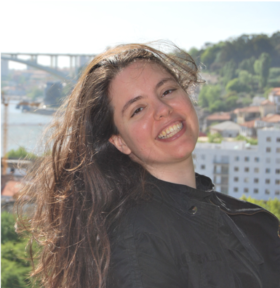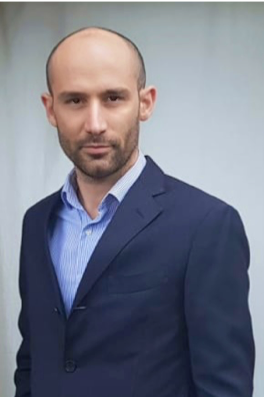Microbiology Society journal prizes: M4 and Pseudomonas 19
Posted on March 6, 2020 by Microbiology Society
Each year, the Microbiology Society’s journals sponsor a number of prizes at various conferences around the world. Here, we speak with some of the winners of prizes presented at the Midlands Molecular Microbiology Meeting (M4) and Pseudomonas 2019.
Winner of the Journal of Medical Microbiology oral presentation prize at M4: Ana da Silva

Title of poster: 'Understanding phenotypic diversity of Pseudomonas aeruginosa in chronic diabetic ulcers'. I’m studying differences in the behaviour of bugs taken from diabetic wounds.
Who or what inspired you to be a scientist? I’ve been curious about the world around me since I was very little, and my mother really encouraged me to ask questions about everything. It was this curiosity aligned with my desire to learn more about complex processes in detail that drove me to pursue science as a career.
What are you currently working on and what area of your research excites you the most? I’m currently trying to generate 3D synthetic bacterial communities to investigate how and why bacteria spatially organise themselves to enhance their virulence, resistance to antibiotics and host defences and to delay wound healing.
What would you be doing in your career if you weren’t a scientist? I would still be involved with science, probably as a teacher and write books in my free time.

Winner of the Journal of Medical Microbiology poster prize at M4: Alessandro Carabelli
Title of poster: 'Prevention is the best cure – development of methods for spatio-temporal characterisation of bacteria at and above polymer surfaces'. Lots of harmful bacteria team up to form biofilms that stop the immune system from trying to destroy them. In the context of medical devices like catheters, biofilms are very dangerous. However, a new material has come to the rescue – BACTIGON®, developed in our lab, this stops from bacteria forming biofilms.
What inspired you to become a scientist? My primary school teacher was a big influence – she taught me a lot about the natural world and how to observe it. During my PhD I remember working late into the early hours in the lab. I was so engrossed in that research and imagined I was the only person on Earth working on it. That feeling of unique and exhilarating scientific inquiry has never left me.
What are you currently working on and what area of your research excites you the most? In my research I am seeking to develop biomaterials that positively impact the healthcare sector –specifically surface polymers that prevent the spread of infectious diseases, such as methicillin-resistant Staphylococcus aureus (MRSA). Using interdisciplinary methods, I focus on the biological mechanisms that trigger bacteria to respond positively to different surface chemistries.
What would you be doing in your career if you weren’t a scientist? Many friends of mine are lawyers and I love problem solving and constructive debate, so I might have chosen that career. I was a teacher for a while before I worked in the lab and I've loved playing music for a long time, but I think I’ve landed in the best sector! Problem solving, debate with academics, listening to music while I write, and I have students!
Winner of the Journal of Medical Microbiology oral presentation prize at Pseudomonas 19: Corrie Belanger
Title of talk: 'Exploring how physiologically relevant conditions affect the susceptibility of Pseudomonas aeruginosa to antibiotics'. My research is studying how bad bacteria grow differently when they infect humans, and how we can use this altered growth to target and kill the bacteria before they kill us.
What inspired you to become a scientist? I was always interested in science and in trying to understand how things worked when I was growing up. My parents sparked my interests as a child by encouraging me to look at the stars and galaxies at night, plant and care for vegetables in the garden and find insects around the neighbourhood. Up until my undergraduate degree I wanted to study plants, but my first experience studying molecular genetics of bacteria in a lab setting made me fall in love with the field of microbiology and its applications.
What are you currently working on and what area of your research excites you the most? I currently study mechanisms underlying antimicrobial peptide and antibiotic susceptibility of drug-resistant pathogens in host-mimicking conditions. The genetic mechanisms that prokaryotes and eukaryotes use at the cellular level to control their physiology and susceptibility is really fascinating to me.

